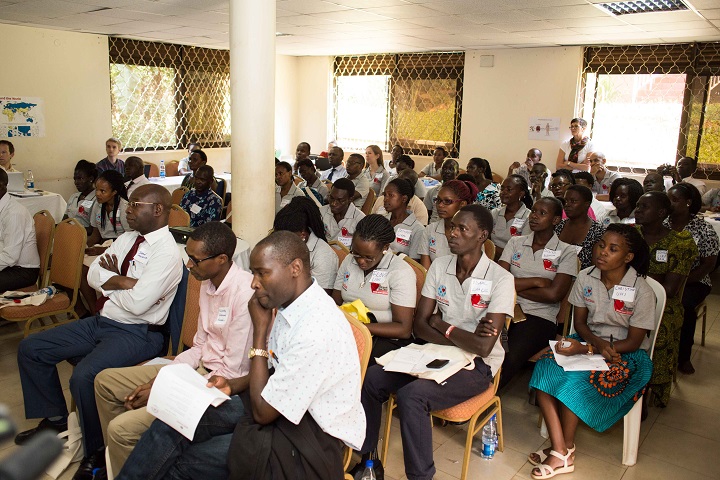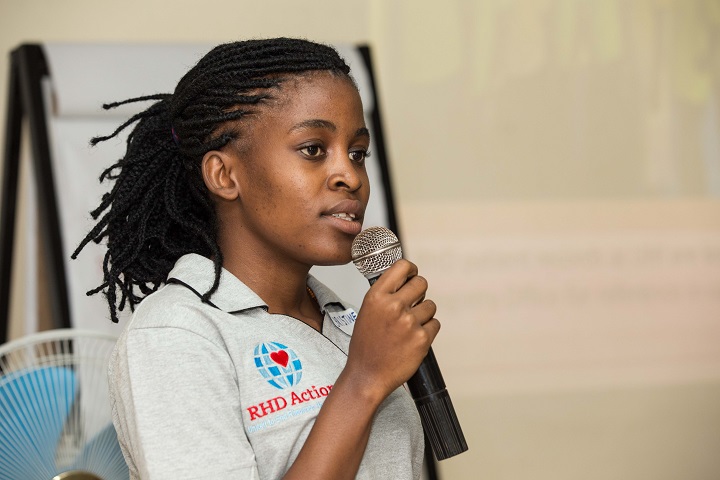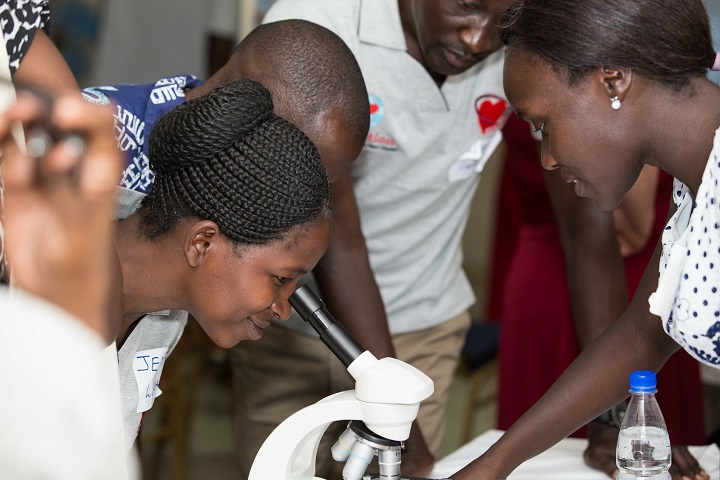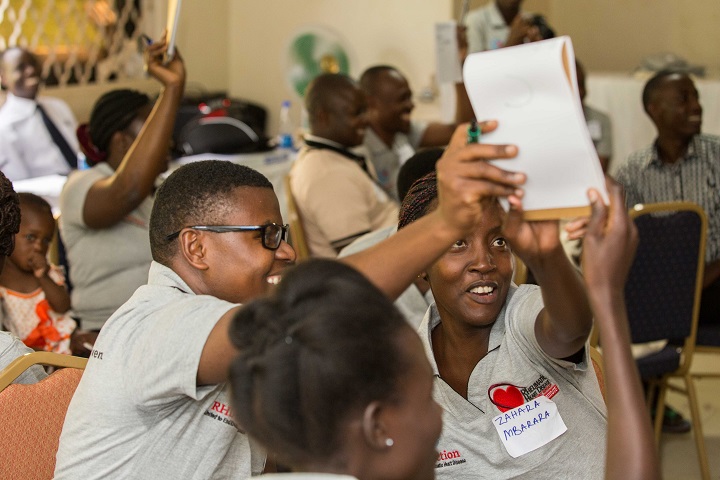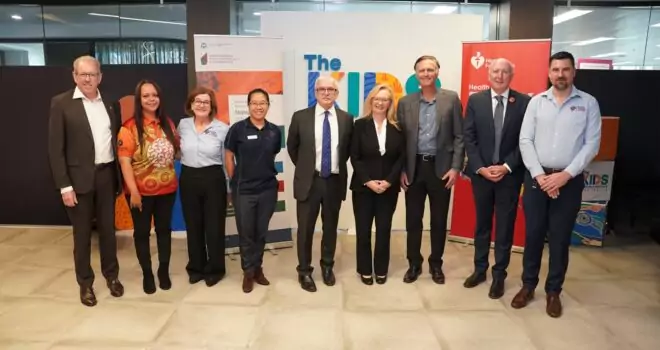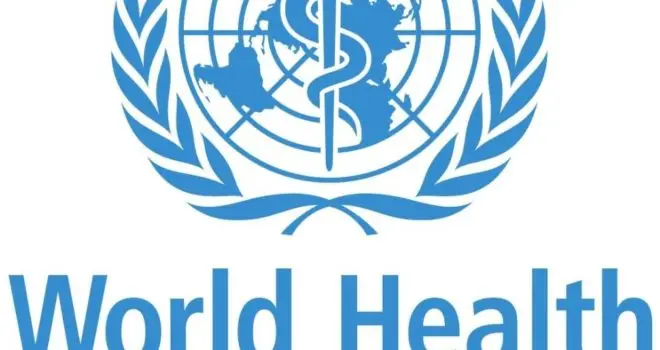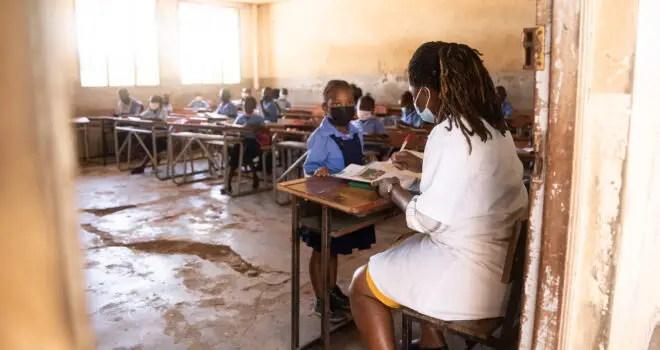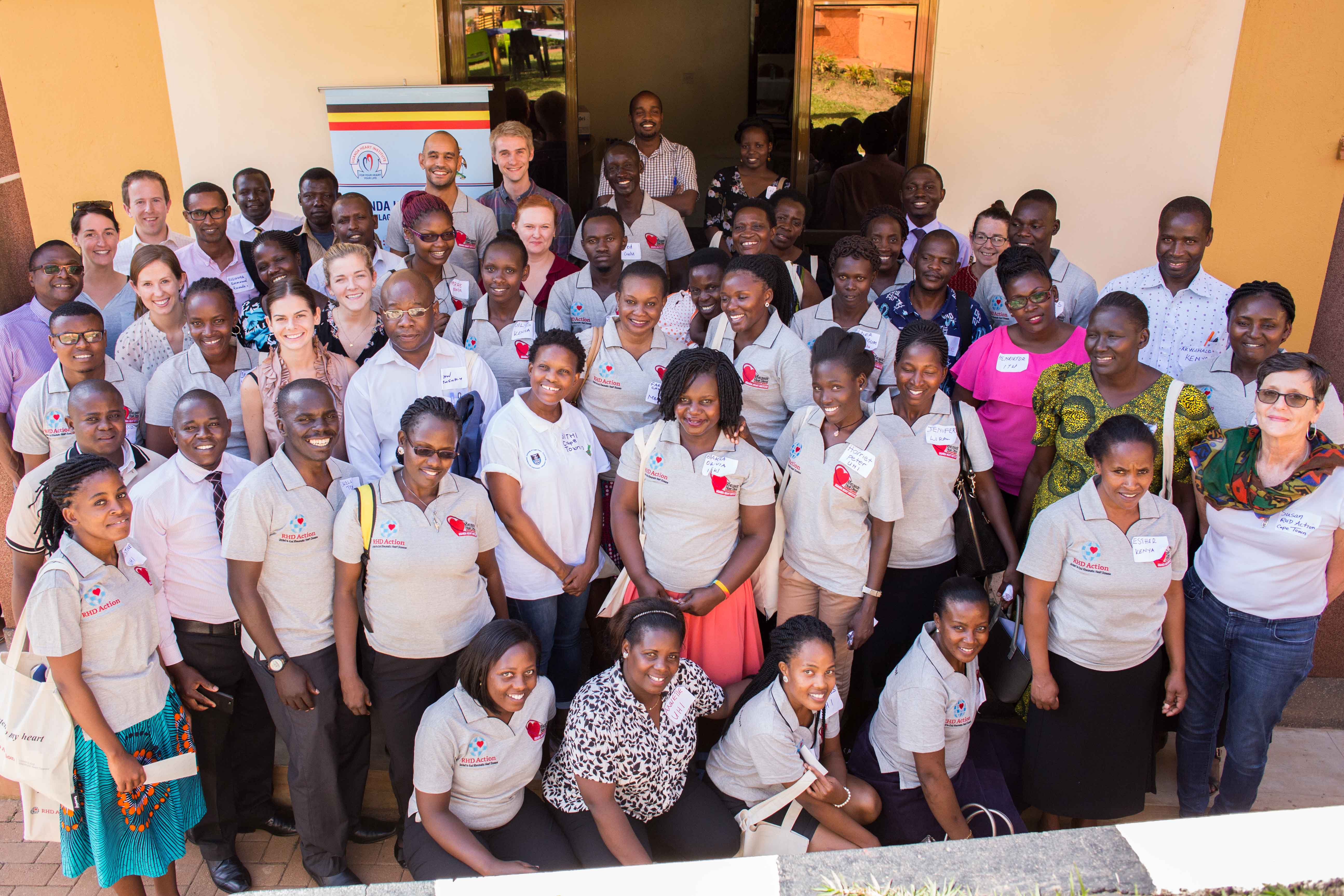
On 1st November 2017, the Uganda Heart Institute (UHI) Rheumatic Heart Disease Support Group and RHD Action – of which the World Heart Federation is a founding member – hosted an interactive event entitled ‘Listen to my Heart’ at the Mulago Guest House in Kampala, Uganda.
Attended by people living with rheumatic heart disease (PLWRHD), physicians, nurses and policy makers, the event was hosted to raise awareness among people living with rheumatic heart disease, giving them the opportunity to learn more about RHD and the services health care workers provide, and most importantly, the chance to meet and network with other PLWRHD from across the region.
Participants had the chance to visit six demonstration tables during the event, which provided a wide range of information encompassing the different aspects of rheumatic heart disease (RHD) care and prevention. Patients were able to use a microscope to examine Group A Streptococcus bacteria, view demonstrations of the use of stethoscopes and handheld echocardiography, and obtain information on adhering to benzathine penicillin G prophylaxis.
One table focused on surgery, displaying a mechanical valve and a video of a recent balloon valvuloplasty (valve repair) procedure performed at UHI, while another demonstrated the importance of maintaining a healthy lifestyle, as patients were able to calculate their body mass index (BMI).
Finally, an ‘RHD Around the World’ table enabled participants to learn about ongoing global programmes and activities seeking to prevent and control RHD.
Morning Session
Okello Tom – Chair of the RHD Support Group at the Uganda Heart Institute – introduced the event, saying “RHD is a silent killer. Many who come to be diagnosed are diagnosed late. But RHD can be stopped – and this is why we are here”. Tom, who himself underwent heart valve replacement surgery in 1996, said that people living with RHD could make a difference: “It is our desire that we see RHD eradicated from Uganda, and it is up to us to start this fight”.
Dr Peter Lwabi, senior consultant pediatrician and cardiologist, and the Deputy Executive Director t UHI, emphasized just how far the RHD programme in Uganda has progressed, and said that the patients attending today were an inspiration: “As doctors, we get attached to you – there is nothing more painful than watching someone in the prime of their life lose that battle. It is wonderful that you are here – it proves it is possible.”
Dr Rosemary Wyber of RhEACH – an organization working on RHD based in Australia and South Africa – then gave a summary of the work of RHD Action, a global initiative with the goal of preventing, controlling and eliminating RHD worldwide.
Her presentation was followed by Katusiime Christine, Vice-Chair of the RHD Support Group, who introduced her fellow members on the committee and described their important role in RHD care: “we work to bring back hope to those who have been diagnosed with RHD. We visit patients at the hospital, provide family counselling and speak to their relatives, and remind people of the importance of BPG”. The audience then listened to the experience of Zahara from Mbarara, who was the first person in Uganda to undergo valve replacement surgery at the Mulago Hospital.
After visiting the booths, participants had the chance to test what they had learned in a ‘Jeopardy’ quiz, which included questions ranging from Group A Strep to heart surgery, and from primary and secondary prevention of RHD to the World Health Organization.
Afternoon Session
Following lunch, the focus of the event shifted to global discussions on RHD, as Jeremiah Mwangi, Director of Policy & Advocacy at the World Heart Federation, addressed participants on the upcoming debate on the Draft Resolution on ‘Rheumatic fever and rheumatic heart disease’, and the important contribution of the voice of people living with RHD to reach this significant milestone.
This presentation was followed by the stories of the participants; among these was Samuel Phiri from Zambia, who recounted how he was unable to run and play as a boy, and Adoch Elder from Gulu, Uganda, who had succeeded in qualifying as a teacher following her successful open-heart surgery.
Closing remarks were provided by Dr. Isaac Ssinabulya, a cardiologist and medical advisor to the patient support group, who highlighted the vital role played by the RHD Patient Support Group in improving RHD care. “They call me the advisor – actually they advise me. The support group is a lot of work taken off my shoulders: patient support groups are the best advocates we have. They have not allowed the disease to prevent their progress – let’s not let RHD prevent us from living our lives”.
More pictures from the event
